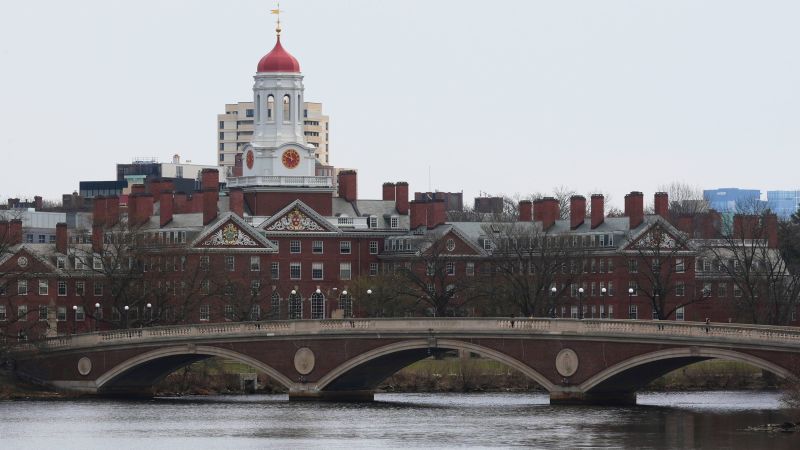In recent revelations concerning the Trump administration’s actions towards Harvard University, a Defense Department official indicated that a $12 million biological threat research grant at Harvard should not be ended, citing significant national security concerns. This information stems from a series of internal documents that Harvard’s legal team has reviewed, which argue that the abrupt freezing of over $2 billion in federal funds directed to various research initiatives at the university amounted to a violation of federal law.
According to reports, Harvard lawyers disclosed that the White House pushed for the immediate cessation of these federally funded research programs, which they claim represents an unlawful interference from the government. Specifically, the research program in question was praised by the official from the Defense Advanced Research Projects Agency (DARPA), who noted that Harvard was excelling in its contributions to understanding biological threats. The official went on to emphasize that a lack of adequate knowledge concerning biological risks could severely jeopardize national security.
Despite these warnings, the Defense Department decided to cease funding for the grant in mid-May. Harvard’s response to this cancellation was one of frustration, as they underscored the clear public and national benefits that would arise from the continued support of the research grant. In their court filings, Harvard’s representation argued that the government appeared to be punishing the institution for its exercise of First Amendment rights, as there was no indication that the Secretary of Defense acknowledged or acted upon the DARPA official’s concerns.
Harvard has reached out to the Defense Department for comments regarding this situation, but no response has yet been recorded. In a sworn statement presented to the court, John Shaw, Harvard’s Vice Provost for Research, asserted that the university would face irreversible disruption to multiple ongoing projects if grant funding continued to be withheld. He elaborated on the potential damage, explaining that sensitive laboratory equipment could fall into disrepair, crucial biological samples might spoil, and even live specimens could have to be euthanized, highlighting the detrimental impact of the funding cuts on scientific research.
Moreover, Shaw pointed out that despite Harvard’s considerable endowment, the institution could not independently cover the gaps left by the terminated federal funds. With a pivotal phase of crucial research underway involving microfluidic experiments, Harvard was in a unique position to integrate various sophisticated technologies that would be impossible to reconstruct rapidly should the financial support be eliminated.
In developments related to the ongoing legal battle, additional documentation filed by Harvard outlined specific examples of other research projects adversely affected by the funding freeze. This included a pediatric HIV/AIDS investigation backed by an $88 million grant and projects to combat antibiotic-resistant infections, among others. In total, Harvard claimed that $2.4 billion in federal awards have been terminated, impacting over 950 research projects across the university.
The case is particularly significant because Harvard argues that the government’s actions were not only abrupt but also in violation of legal protocols, emphasizing a lack of due process in the decisions made at the federal level. The university contends that internal communications reveal a clear directive from the White House to execute these funding terminations, suggesting that the government was acting under presidential orders rather than following a legitimate evaluation process.
In its filings, Harvard made a compelling argument that the rushed decision-making resulted in adverse consequences for various research initiatives and demonstrated that the claims of antisemitism that led to the freezes were not underpinned by robust evidence. The administration’s sweeping terminations sought to impose maximum penalty on Harvard rather than addressing any substantive issues regarding its programs. As the matter progresses through legal channels, with court hearings expected soon, it remains to be seen how both parties will navigate the complications surrounding these federal funding disputes and their broader implications for academic research.



